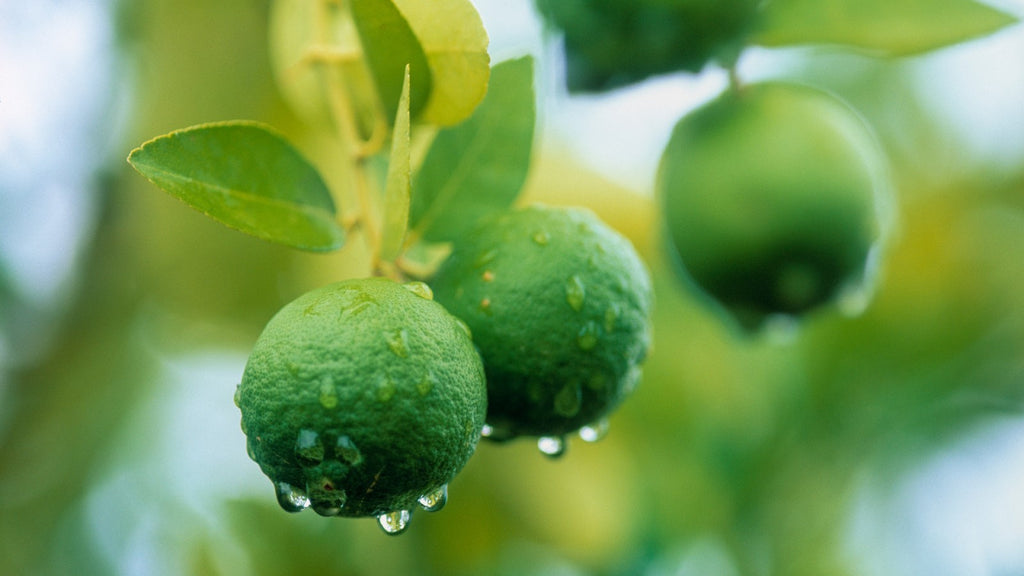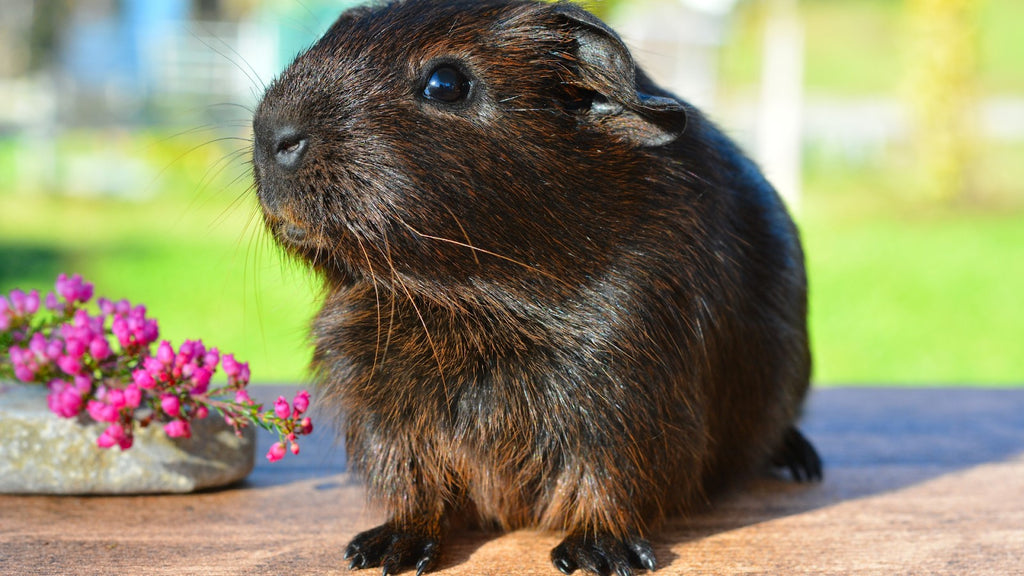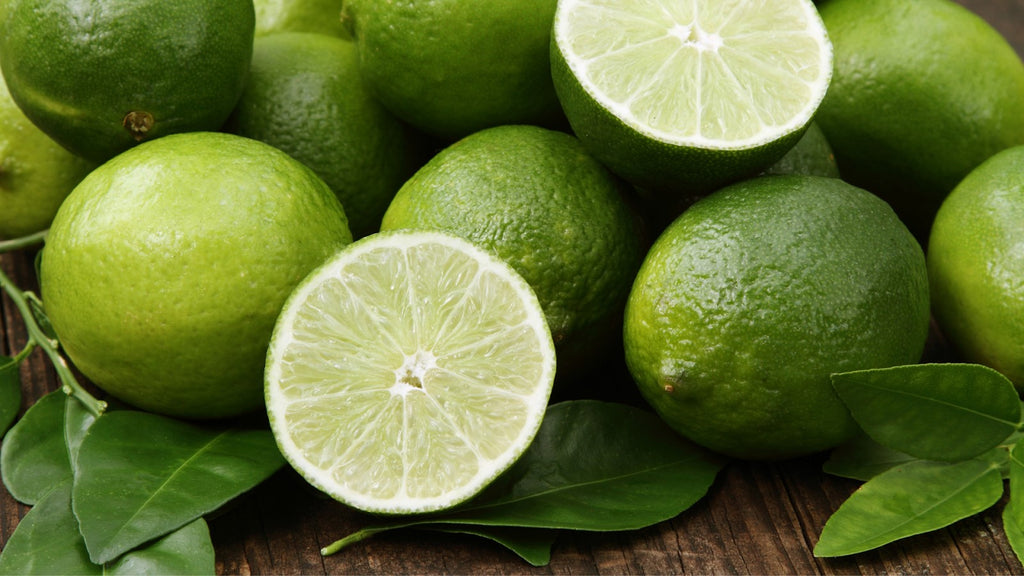
Lime is a hybrid citrus fruit, which is typically round, and they are mostly green in color. They are of several species, some of them are called Key lime, Persian lime, kaffir lime, and desert lime. Limes are an excellent source of vitamin C, they are often used to accent the flavors of foods and beverages. This zesty tropical fruit is consumed throughout the world in the form of beverages, refreshing cocktails, pickles, jams, snacks, and to accent the flavors of foods.
Lime has also made its presence felt in many home remedy products as it is naturally rich in antioxidants, flavonol glycosides, kaempferol, and vitamin C. But the problem is the fruit is sour and highly unpalatable for some. However, humans found their around them by mixing the extracted juice with water to enjoy the benefits. Can guinea pigs also find their way around it? Can guinea pigs even eat limes? Continue reading this article to find out
Can guinea pigs eat limes?
Yes, guinea pigs can eat limes but only in moderation. Guinea pigs just like a human can not manufacture their vitamin C therefore they require an external food that can provide the daily dose of this nutrient for them on other to function effectively. Fortunately, all citrus fruits including limes contain this nutrient, but not only that you will also see a high proportion of acidity and sugar with a decent amount of phosphorus and calcium. Due to the sensitive nature of guinea pigs, feeding them a sour taste lime can be dangerous for them when served in the wrong proportion, and this is why pet owners should be careful when feeding it to them.

In what proportion should lime be given to guinea pigs
Lime, just like lemon may be enriched with a lot of essential nutrients and also provide health benefits for your cavies. However, if they do not follow the standard procedure of feeding this fruit to guinea pigs, it may result in serious health risks. To avoid that, one small size or chunk of this fruit should be enough for satisfying their cravings. This proportion should not be given daily instead, it can be given 2- 3 days at intervals to your pet, and this is because of the sugar and high acidity enriched in them.
However, if you are just feeding this fruit to your little cavy, their proportion should be lesser than the standard proportion because of the allergic reaction that can arise from them.
Can guinea pigs eat lime leaves?
No, guinea pigs can not eat lime leaves. Guinea pigs are known to be herbivores animals that feed mostly on plant and plant-based food example leaves. However, not all leaves can be eaten and digested by the digestive system of your little cavies an example is the leaves of lime fruits. Lime leaves contain some nutrients in high proportion and this may result in stomach irritation for your little cavies. Hence, do not feed it to them.
Can guinea pigs eat like skin/peel?
Unlike the leaf part of lime fruit that guinea pigs can not eat, they can eat the peel or skin of a lime. This is because of the high proportion of vitamin C and fiber present in them. These nutrients are responsible for improving the immune system of your pets and also aiding digestion for them. However, to enjoy the full benefits of this part without risk, it should be fed in moderation because it also contains a decent amount of phosphorus and oxalates. This can be dangerous when present in high proportion in their body system. A small piece of lime peel is enough for them for a whole week.
What are the health benefits of feeding lime to your guinea pigs
Aids in digestion and detoxification
Lime juice’s atomic structure is similar to the digestive juices found in your cavy stomach. It tricks the liver by producing bile, which helps keep food moving throughout the body and gastrointestinal tract smoothly.
Bumps up the Vitamin C quotient
Because their body does not make vitamin C on its own, it is important to get enough of it from the foods and drinks they ingest, like lime and lemon. Vitamin C stimulates white blood cell production which is vital for oxidative damage in the body system.
Rejuvenates skin and heals the body
The antioxidants found in lime fight damage caused by free radicals, keeping their skin looking fresh. It helps the body by producing collagen which is essential in smoothing out lines in the face.
Prevent weight gain
Lime is enriched with low calories and carbs, and this is essential in preventing weight gain. They also contain pectin, a type of fiber commonly found in fruits. Pectin helps you feel full longer.
Reduce High Blood Pressure
Eating lime is helpful for your cavy suffering from heart problems because it contains potassium, and this help to control high blood pressure, dizziness, and nausea, They also provide a calming sensation to both the mind and body.
Gives stronger muscle
Potassium is essential that help your little cavy to build stronger muscle, and they also help to reduce muscle pain and increase the activities of your little cavies. Potassium also helps with proper electrolyte balance in the guinea pig's body

Possible health risks of feeding lemon to guinea pigs
Limes are rich in vitamin C, dietary fiber, and minerals. they taste very sour, and also contain a lot of organic acids like citric acid. However, because they are very acidic, eating too much lime will be harmful to their tooth enamel and thereby cause dental problems. In addition, lime can cause excessive secretion of gastric acid, which can damage the gastric mucosa and cause symptoms such as stomach pain and bloating. Lime also has a high proportion of calcium and phosphorus content, and too much of this in the body system can result in kidney or bladder stones.
Conclusion
Yes, guinea pigs can eat lime as long as they are strictly in moderation. Guinea pigs are herbivorous animals with sensitive stomachs and feeding them food that contains a high proportion of acid is already setting them up for health risks rather than nutrient benefits. Some examples of the benefits they offer have been stated above likewise, their health risks.
